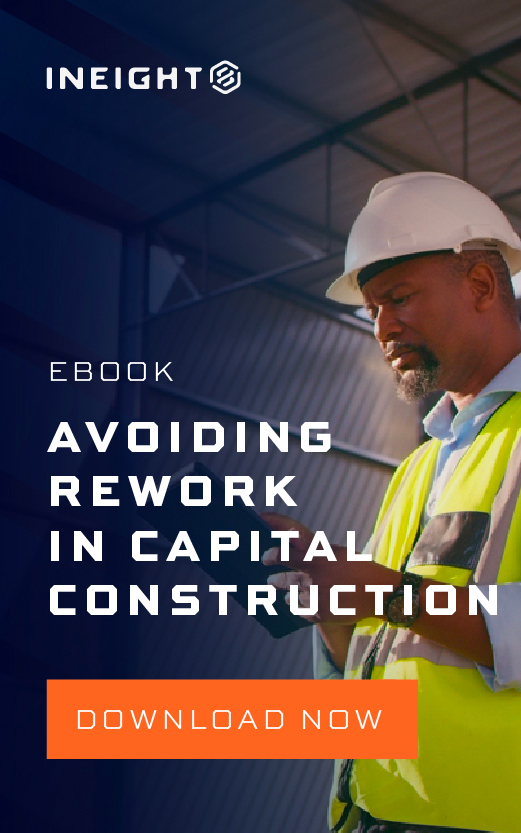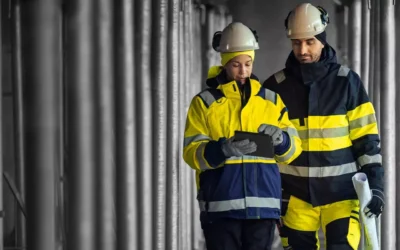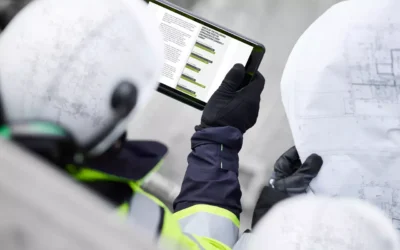The construction industry is seeing increased interest and implementation of the wide array of construction technology available today. It’s a reassuring sign that many are not only embracing the possibilities it brings, but are eager to jump right in.
Yet, successful tech adoption isn’t a plug-and-play process. This is a good thing. It compels us all to get at the heart of our tech strategies — encompassing real needs, budgets, and expectations — so we can more effectively explore the technology choices that are best for managing the different facets of the unique capital projects in our portfolios.
Whether you’re in the early stages or much further along your tech journey, there are a few key considerations to always keep in mind at any stage to maintain perspective all along the process.
Assessing Your Situation Ensures the Right Technology
Project owners expect more than just a finished product — they want transparency, better outcomes, and more efficiency from the design phase through to completion and maintenance. These expectations must be met by providing better service than contractors can deliver with generic computer programs and legacy systems, which makes finding the most appropriate construction technology more vital.
In the quest for the right solution, it’s easy to be attracted by all the bells and whistles that come with many of today’s technology options. But will all those impressive, interesting capabilities help improve productivity, cut costs or otherwise add measurable value to the projects you work on? It doesn’t make good business sense to invest money in what you don’t — or won’t — need. Shoehorning an impractical solution is a sure way to fritter away any measurable return on your technology investment.
To ensure you leverage the capabilities that construction tech has to offer, ask some pointed questions to gain clarity on what will most help you better manage capital projects. Where is your business right now? Where do you want to be? Within that continuum, what are the biggest pain points you want to alleviate? What processes could be streamlined with technology? What efficiencies do you hope to gain? What technologies are capital project owners expecting or requiring that deliver on the improved outcomes they want? The answers to these kinds of questions can help guide you in determining the foundational or advanced technologies that you’re ready for that will best serve your needs.
Understanding Construction Tech Is About More Than Software
Construction is undergoing a gradual radical shift. It’s not just the industry itself that is being transformed but also the way we do business, changing how construction companies operate through digital tools and platforms. It might seem like much of the focus is on acquiring technology tools. While that’s certainly part of it, construction tech adoption itself isn’t an outcome.
It’s really about investing in people and processes by procuring the technology that enables them to be more efficient and better meet client requirements. Think of it this way: Focusing too much on procuring tech solutions without also addressing workforce issues like training or engaging everyone in the buy-in and change management processes means you risk missing out on some of the benefits that new technology can provide, like better communication and collaboration across teams.
Managing Expectations Fosters Greater Success
Capital projects continue to be more sophisticated and complicated — in terms of the technology used to construct them as well as the technology being incorporated into the structures themselves. It’s a lot to manage and monitor.
So many moving parts make it challenging for construction companies to keep track of all the tasks involved and make sure they’re completed on time and according to specification. Construction tech can do all this, but it isn’t a panacea that will solve every single construction project challenge. Meeting these demands requires setting realistic expectations for your project teams:
Expectations about costs: Of course, there are costs associated with adopting and operating new solutions. It takes time for companies to learn how best to implement and use them to see a noticeable ROI.
Expectations about timeframes: In the real world, new solutions won’t yield immediate money-saving or productivity-boosting results. It takes time for people to learn how to use new tools and adapt to using them in their daily jobs.
Expectations about what’s possible: Anticipate there will be project team members who aren’t automatic fans of change, or who fear their jobs may being taken over by automation or robotic technology. Reassure them that training can help them master the tech, not the other way around. Also, emphasize that a learning curve is to be expected. This can help alleviate any sense of pressure and frustration that can come with implementing technology.
While these are among the primary reasons to take a mature, purposeful approach to your construction tech initiatives, they’re certainly not exhaustive. We’re here to help you determine the most appropriate options for your project and business needs, whether you’re taking a paced approach to technology adoption, looking at an integrated platform, or adopting advanced field technologies. Simply schedule a consultation to learn how.
Sign up for our monthly blog newsletter today and stay up to date on the latest industry news.



